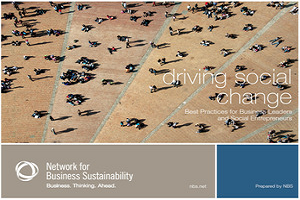October 14, 2013
More employers than ever introduce some kind of flexible working pattern
Disenchantment with flexible working appears to be ongoing in the tech sector, with a recent report revealing that computing giant HP is following Yahoo’s lead by quietly discouraging staff from working from home. However, more employers than ever are attaching growing importance to making at least some changes to working patterns as a means of managing rising long-term absence levels. In the annual CIPD / Simplyhealth Absence Management, the number of employers introducing small changes, such as later start times, has increased by 20 per cent in the last year alone. Over 70 per cent of organisations report a positive impact on employee motivation and employee engagement, while a further 46 per cent are using flexible working options to support employees with mental health problems. (more…)




















March 15, 2013
Where flexible working employees really want to work? Starbucks.
by Mark Eltringham • Comment, Facilities management, Technology, Workplace
(more…)